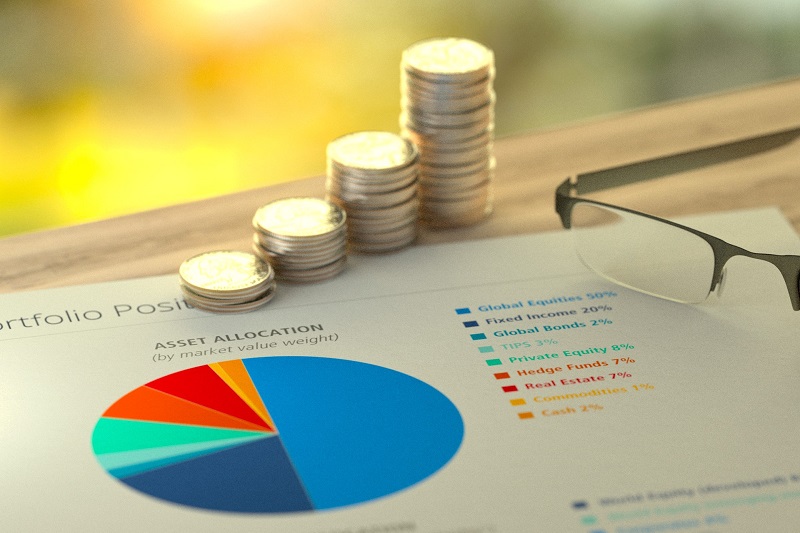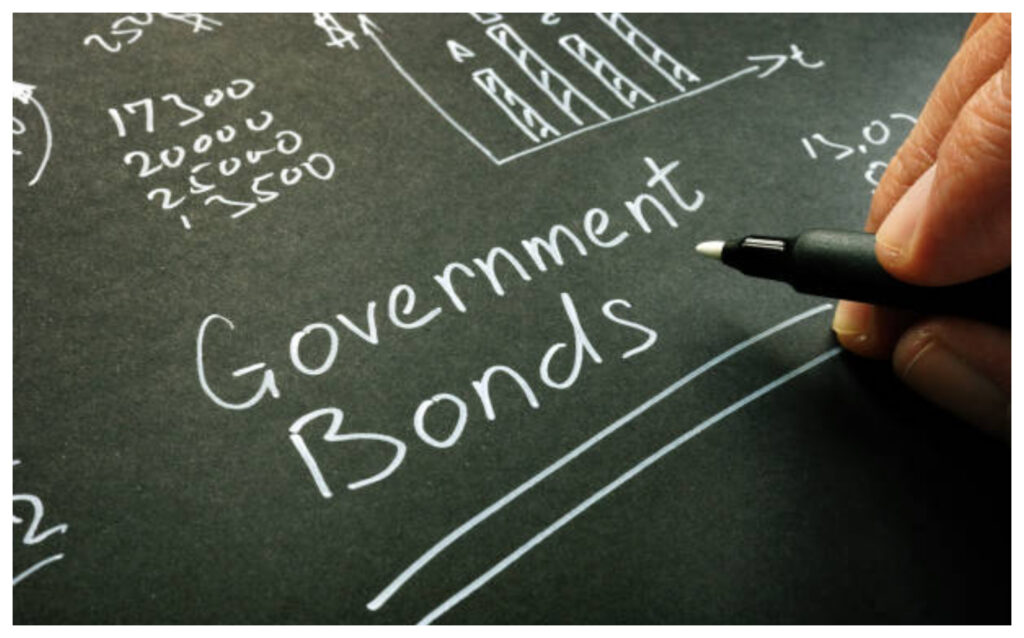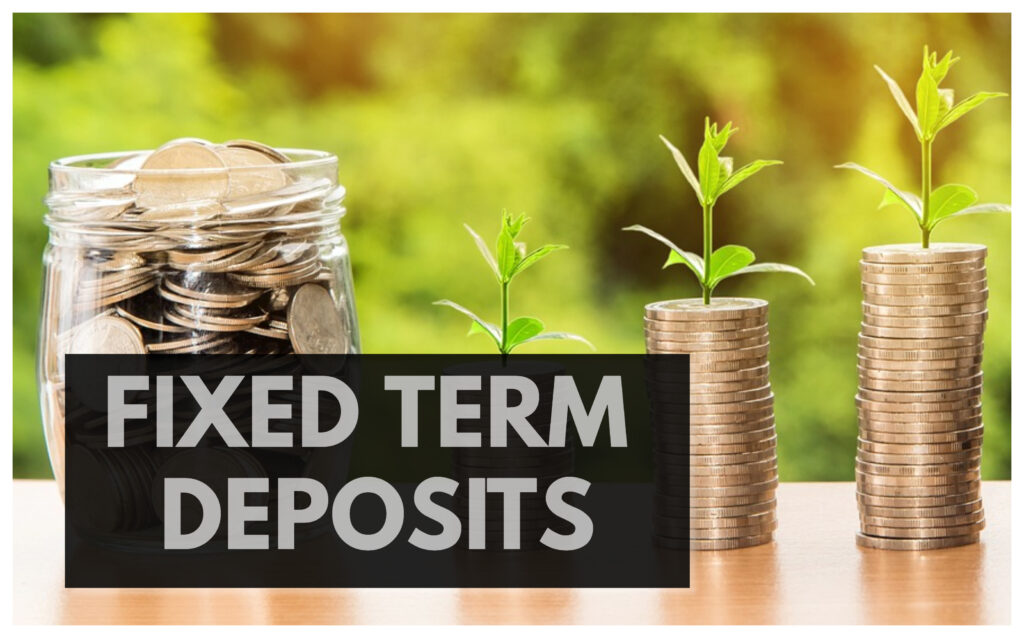Navigating the world of investments in retirement can feel like setting sail in uncharted waters. For Aussie retirees, the quest isn’t just about growing wealth; it’s about safeguarding the nest egg against the tides of economic uncertainty. You’re looking for safe harbors or investments that promise peace of mind alongside steady returns. At the same time, you’re looking for an investment that will support the lifestyle you want in the future.
What are your expectations during the golden years within the investment market? The spectrum is broad, from the solid ground of government bonds and cozy high-interest savings accounts to the more adventurous territories of stocks that pay dividends and trusts invested in real estate. The trick is in choosing wisely.
You’re going to learn what kind of investment to aim for that will give you the right amount of risk you are comfortable with. Let’s go through the article and see what are your investment options during your senior years.

Contents
- 1 Range of Investment Options Available to Australian Retirees
- 1.1 Prefer to listen rather than read?
- 1.2 Blue Chip Stocks With DRIPs
- 1.3 Real Estate Investment Trusts
- 1.4 Defensive Equity Funds
- 1.5 Government Bonds
- 1.6 Fixed Term Deposits
- 1.7 Life Insurance
- 1.8 High-Interest Savings Account
- 1.9 Investing in ETFs
- 1.10 Managed Funds
- 1.11 Technological Tools for Managing Investments
- 2 FAQ on Retiree Investment Options
- 2.1 What are the best low-risk investment options for Australian retirees?
- 2.2 Why do Australian retirees prefer low-risk investments?
- 2.3 How do low-risk investments benefit a retiree’s investment portfolio?
- 2.4 Can low-risk investments provide income for retirees?
- 2.5 What should Australian retirees consider before investing?
- 2.6 Are blue-chip stocks with DRIPs a good option for retirees?
- 2.7 How do REITs work as an investment for retirees?
- 2.8 What is the role of defensive equity funds in a retiree’s portfolio?
- 2.9 Why are government bonds considered safe for retirees?
- 2.10 How do fixed-term deposits work for retirees?
- 3 Conclusion
Range of Investment Options Available to Australian Retirees
In this blog post, we will take an in-depth look at the range of investment options available to Australian retirees offering maximum security and financial stability. We will analyze different investment options, their unique characteristics, and the potential benefits and drawbacks for Australian retirees.
Prefer to listen rather than read?
We will also consider the risks associated with each option, and discuss strategies for retirees to choose the best investment for their individual needs. Finally, we will provide a list of trusted and reliable investment options for Australian retirees so that they can make informed decisions for their financial security.
Blue Chip Stocks With DRIPs
Blue-chip stocks are among the safest investment options available to Australian seniors. They allow shares of well-established, financially stable companies with a track record of reliable performance, strong market presence, and often, a history of consistent dividend payments.
These companies are typically leaders in their respective industries and are known for their resilience during economic downturns.
Dividend Reinvestment Plans (DRIPs) offer shareholders the option to automatically reinvest dividends received from owning shares of a company back into additional shares of the same company, rather than receiving cash payments.
With DRIPs, when a company pays out dividends to its shareholders, instead of receiving the dividend payout in cash, shareholders have the dividends automatically reinvested to purchase more shares of the company at the current market price.
By reinvesting dividends back into the stock, investors can benefit from compounding returns. Over time, the additional shares purchased through DRIPs can generate their own dividends, which are then reinvested to buy even more shares. This compounding effect can significantly enhance long-term wealth accumulation.
Blue-chip stocks with DRIPs are particularly attractive for long-term investors looking to build wealth steadily over time. The combination of reliable dividends from established companies and the power of compounding can lead to significant portfolio growth over the years.

Real Estate Investment Trusts
Real Estate Investment Trusts are yet another one of the many low-risk investment options open to Australian seniors. REITs allow individuals to invest in a portfolio of real estate properties without directly owning or managing them.
REITs pool funds from investors to acquire, develop, manage, and finance income-generating real estate assets.
These investment options allow companies to own and operate income-producing properties, such as office buildings, shopping centers, apartments, hotels, and industrial facilities.
REITs generate rental income from tenants and may also benefit from capital appreciation as property values increase.
The REITs provide financing for real estate transactions by investing in mortgage-backed securities or originating mortgage loans.
They generate income through mortgage interest payments and may employ hedging strategies to mitigate interest rate risks.
REITs are required by law to distribute a significant portion of their taxable income to shareholders in the form of dividends.
They are pass-through entities that are not subject to corporate income tax at the entity level, provided they meet certain criteria. For example, they must distribute at least 90% of taxable income to shareholders as dividends.
As a result, most of the income generated by REITs is passed through to shareholders.
This is why REITs typically offer attractive dividend yields, making them popular among them among the most popular income-generating investment options open to Australian investors, including retirees seeking regular income during retirement.
Investing in REITs also provides investors with exposure to a diversified portfolio of real estate properties across different sectors and geographic locations. This diversification helps spread out risk and reduces the impact of individual property performance on the overall investment.

Defensive Equity Funds
Like many other investment options, defensive equity funds focus on investing in stocks of companies known for their stability, resilience, and ability to withstand economic downturns.
In defensive equity funds, the investment decisions are typically made by professional fund managers or investment teams employed by the fund management company.
You can think of investing in defensive equity funds as entrusting your money to a team of superheroes who specialize in growing – and safeguarding – your money.
The funds provide investors with protection during market downturns while offering the potential for modest capital appreciation and income.
Defensive equity funds typically follow a conservative investment strategy that prioritizes capital preservation and downside protection.
Fund managers select stocks of companies with strong fundamentals, stable earnings, low debt levels, and reliable cash flows.
These companies often operate in defensive sectors such as healthcare, consumer staples, utilities, and telecommunications.
Defensive equity funds tend to invest in dividend-paying stocks of established companies with a history of consistent dividend payments.
These investment options can provide investors with a reliable stream of income, which can be particularly attractive for retirees or those seeking passive income during retirement.
Defensive equity funds generally exhibit lower volatility compared to broader market indices, such as the S&P/ASX 200 Index.
This lower volatility can help reduce the overall risk in an investment portfolio, providing stability and peace of mind for investors, especially during turbulent market conditions.

Government Bonds
Government bonds are considered one of the safest investments for Australian retirees because they are guaranteed by the government and typically come with a low risk of default. They can be purchased in two forms. They can come in the form of direct bonds issued by the government or as an investment in a managed fund that invests in government bonds.
Government bonds are generally a good option for retirees looking for a secure income stream due to the low risk of default and the potential for a steady return.

Fixed Term Deposits
Fixed Term Deposits are a great option for Australian retirees who are looking for investment options that provide maximum security. A Fixed Term Deposit is a type of deposit account where the money is locked away for a set period of time, usually ranging from one month to five years.
During this period, the money can’t be accessed until the account matures, so your funds are safe from the risk of market fluctuations. The interest rate is also fixed for the length of the term, so you can be sure you’re getting the best return for your money.
By choosing a Fixed Term Deposit, you can rest assured that you’ll have a secure and stable return on your investments.

Life Insurance
Life insurance is an important part of any retirement plan. It can provide financial security and peace of mind in the event of an untimely death. Life insurance policies can be tailored to the individual, allowing a retiree to choose a policy that best meets their needs.
The premiums and benefits can be adjusted according to the retiree’s budget and lifestyle. Life insurance can also be used to cover expenses related to long-term care or to fund a child’s education. Ultimately, it provides a layer of financial security to help ensure that a retiree’s loved ones are taken care of in the event of their death.

High-Interest Savings Account
High interest savings accounts are among the safest investment options available to Australian seniors. These accounts pay you a higher interest rate on the money you keep in them when you meet certain conditions.
There are usually some rules you have to follow to get that extra cash. For example, you might need to deposit a certain amount of money each month or keep a minimum balance in the account.
Unlike regular transaction accounts that you might use for everyday spending, high-interest savings accounts typically don’t come with a debit card. This makes it a bit harder to access your money quickly, but it also helps you resist the temptation to spend it all.
Instead, your money stays in the account, and the bank pays you interest on it every month, as long as you meet their conditions.

Investing in ETFs
Exchange-traded funds (ETFs) are a great option for Australian retirees looking to generate a secure and steady income stream. ETFs provide investors with access to a wide range of asset classes, and they come with lower management fees than managed funds.
Plus, ETFs are more tax efficient than other investment options and provide greater diversification than buying individual stocks. ETFs are easy to buy through the ASX, so investors can easily diversify their portfolios across different asset classes. Retirees should consider investing in ETFs to ensure their retirement savings are safe and secure.

Managed Funds
Managed funds are a type of investment option for Australian retirees that offers a high level of security. Managed funds are professionally managed investments that pool funds from multiple investors and are divided into a range of asset classes such as shares, fixed income, property, and cash.
Investors can access strategies and expertise from professional fund managers, reducing the risk of poor investment decisions. As the funds are managed on their behalf, investors benefit from the managers’ expertise and save time on researching and managing their investments.
Managed funds are a great option for Australian retirees who are looking to invest their money in a secure and low-risk environment.
Technological Tools for Managing Investments
The digital world brings a wealth of tools for Australian retirees looking to grow their investments. Easy-to-use apps and platforms turn complex financial management into a straightforward task. These tools are perfect for keeping an eye on various investment options. Whether you’re into safer choices like government bonds and savings accounts or leaning towards stocks and real estate, there’s a tech solution out there for you.
Investment Tracking Apps
Stay updated with real-time data. Investment tracking apps let retirees watch their portfolio’s performance on their phones or tablets. This access means you can react quickly to market changes, ensuring your investments stay on track.
Online Brokerage Platforms
Do you prefer managing your investments directly? Online platforms offer the freedom to buy and sell as you see fit. They also provide resources to learn more about investing. This is ideal for handling stocks, ETFs, and other market securities.
Financial Planning Software
Plan for the future with ease. Financial planning software shows how different investment choices might play out. It’s a clear way to see how today’s decisions affect tomorrow’s security.
Robo-Advisors
Robo-advisors simplify investing. You’re receiving different investment options based on their findings in the current market and your risk comfort. Having robo-advisors lessens the road work you need to make in knowing which ETFs or mutual funds to put your money in.
Market Analysis Tools
Dive deep into the market. Advanced tools offer insights and data for those wanting to understand market trends better. This knowledge is key for making smart decisions on buying or selling investments.
With these digital tools, managing your investments becomes less of a chore and more of an opportunity. They offer the guidance and information retirees need to make their investments work harder.
FAQ on Retiree Investment Options
What are the best low-risk investment options for Australian retirees?
Your low-risk investment options that offer security and stability for Australian retirees include high-interest savings accounts, fixed-term deposits, government bonds, and real estate investment trusts (REITs).
Why do Australian retirees prefer low-risk investments?
Retirees in Australia often prioritize low-risk investments because they seek to preserve their capital and ensure financial stability. These investments offer a safer option, minimizing the risk of losing money.
How do low-risk investments benefit a retiree’s investment portfolio?
Different low-risk investments give you a solid foundation for a retiree’s investment portfolio, offering stability and protection against significant market downturns. They play a crucial role in a balanced investment approach.
Can low-risk investments provide income for retirees?
You have plenty of low-risk investment options, such as government bonds and dividend-paying stocks, can provide retirees with a reliable source of income. This is especially useful in supplementing retirement savings and pensions.
What should Australian retirees consider before investing?
Retirees should assess their investment objectives, risk tolerance, and time horizon. It’s important to consider diversifying investments and seeking professional financial advice to align choices with personal financial goals.
Are blue-chip stocks with DRIPs a good option for retirees?
Yes, blue-chip stocks with Dividend Reinvestment Plans (DRIPs) are a secure investment choice for retirees. They offer the potential for wealth accumulation through reliable dividends and compounding returns.
How do REITs work as an investment for retirees?
REITs allow retirees to invest in diversified real estate portfolios without directly managing properties. They offer attractive dividend yields and exposure to real estate market growth.
What is the role of defensive equity funds in a retiree’s portfolio?
Defensive equity funds invest in stable, low-volatility stocks, protecting during market downturns. They are suitable for retirees seeking modest capital appreciation and income.
Why are government bonds considered safe for retirees?
Government bonds are backed by the government, making them one of the safest investment options. They offer a low risk of default and a steady income stream.
How do fixed-term deposits work for retirees?
Fixed-term deposits lock in funds for a specified period, offering a secure and stable return. They are a great choice for retirees looking for a risk-free investment option.
Conclusion
In conclusion, Australian retirees have a number of investment options available to them with the potential to provide maximum security. From superannuation to annuities and fixed-term deposits, retirees can choose from a variety of products to create a diversified and secure retirement income portfolio.
Investing in a secure, low-risk option such as these can help to protect your retirement savings, while still allowing you to enjoy a comfortable retirement.
Disclaimer:
We are not investment advisors. Our content is intended for guidance and educational purposes only. Before making any investment decisions, it is strongly recommended that you seek advice from a licensed financial advisor or conduct thorough research to ensure that your choices align with your individual financial goals and risk tolerance.
Please remember that all investments carry inherent risks, and past performance is not indicative of future results.



